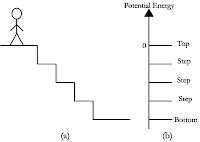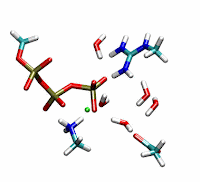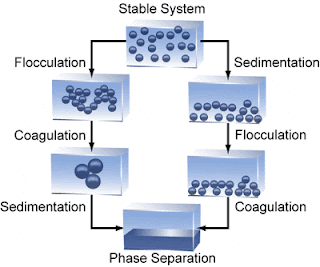fault: a carck in the crust, whose sides show evidence of motion
geologist: a scientist whoi studies Earth
magma: hot, molten rock deep below Eath's surface
lava: magma that reaches Earth's surface
weathering. the breaking down of rocks into smaller pieces
eroison: the picking up and carrying away of pieces of rock deposition: the dropping off of bits of eroded rock
meteorite: a chunk of rock from space that strikes a surface
miércoles, 29 de septiembre de 2010
Vocabulary #11
solar system: the Sun and the objects that are traveling around it
planet: any of the eight large bodies that travel around the Sun and shine by reflectionits light
gravity. the force of attraction, or pull, between, any object and any other objects around it
inertia: the tendency of a moving object to keep moving in a straight line
lithosphere: the hard. outer layer of Earth, about 100 kilometers thick
crust: the rocky surface that makes up the top of the lithosphere
resource: any material that helps support life on Earth
hydrosphere: Earth's water
planet: any of the eight large bodies that travel around the Sun and shine by reflectionits light
gravity. the force of attraction, or pull, between, any object and any other objects around it
inertia: the tendency of a moving object to keep moving in a straight line
lithosphere: the hard. outer layer of Earth, about 100 kilometers thick
crust: the rocky surface that makes up the top of the lithosphere
resource: any material that helps support life on Earth
hydrosphere: Earth's water
Vocabulary #10
kinetic enegy: the energy of moving object
potential energy: a energy stored in a object or material
conduction: a movement of energy from a hot object that comes into contact with a object; the material remains in place
convection: movement of energy by the flow of matter from place place
radiation: movement of energy in the from of waves that can travel through empty space
wet cell batery: a batery containing liquid solution that produces the electric current
dry cell batery: a battery that use ''dry chemical'' to produce an electric current
potential energy: a energy stored in a object or material
conduction: a movement of energy from a hot object that comes into contact with a object; the material remains in place
convection: movement of energy by the flow of matter from place place
radiation: movement of energy in the from of waves that can travel through empty space
wet cell batery: a batery containing liquid solution that produces the electric current
dry cell batery: a battery that use ''dry chemical'' to produce an electric current
Vocabulary #9
physical change: a change in size; or state, without forming a new substance
chemical change: a change in matter that prouduces a new substance with different properties from the original
chemical reaction: a chemical change of original susbtance into one or more subtance
chemical change: a change in matter that prouduces a new substance with different properties from the original
chemical reaction: a chemical change of original susbtance into one or more subtance
martes, 28 de septiembre de 2010
Vocabulary #8
mixture: two or more parts blended together yet keeping their own properties and not turning into a new subtance
solution: a mixture in wich substance are completely blended so that the properties are the same throughtout and the substance stay blended
colloid: particle (or droplets) large enough to block out light spread throughout another substance
emulsion: a liquid spread through another liquid
aerosol: liquid drops or solid particles spread through a gas
gel: a solid spread through a liquid
foam: a gas spread through a liquid or solid
solution: a mixture in wich substance are completely blended so that the properties are the same throughtout and the substance stay blended
colloid: particle (or droplets) large enough to block out light spread throughout another substance
emulsion: a liquid spread through another liquid
aerosol: liquid drops or solid particles spread through a gas
gel: a solid spread through a liquid
foam: a gas spread through a liquid or solid
Vocabulary #7
state of matter: any of the forms matter can exist in
melting point: the temperature at wich a solid changes state into a liquid
boiling point: the temperature at wich liquid changes state into a solid
freezing point: the temperature at wich a liquid changes state into a solid
melting point: the temperature at wich a solid changes state into a liquid
boiling point: the temperature at wich liquid changes state into a solid
freezing point: the temperature at wich a liquid changes state into a solid
Vocabulary #6
element: a basic building block of matter; a pure substance that cannot be broken down into anything simpler
compound: a chemical combination of two or more elements into a single susbtance
atom: the smallest unit of an element still has the properties of the element
proton: a particle with a positive charge in the nucleusof an atom
neutron: an uncharged in the nucleus of an atom
electron: a particle with negative care moving around the nucleus of an atom
nucleus: the dense center part of an atom
molecule: a group of more than atom joined together that acts like a single particle
compound: a chemical combination of two or more elements into a single susbtance
atom: the smallest unit of an element still has the properties of the element
proton: a particle with a positive charge in the nucleusof an atom
electron: a particle with negative care moving around the nucleus of an atom
nucleus: the dense center part of an atom
molecule: a group of more than atom joined together that acts like a single particle
martes, 21 de septiembre de 2010
The type of pollution on my neighborhood
The Type of pollution of my neighborhood is the LAND POLLUTION
Solutions:is to have more trashcans on the streets and put the number of cell phone for demands.
Solutions:is to have more trashcans on the streets and put the number of cell phone for demands.
Suscribirse a:
Comentarios (Atom)

















































